Search
Remove Ads
Advertisement
Summary 
Loading AI-generated summary based on World History Encyclopedia articles ...
Search Results
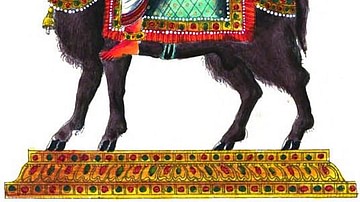
Definition
Agni
Agni is the Hindu god of fire. He is regarded as the friend and protector of humanity, in particular, he safeguards the home. Various forms of fire are associated with Agni and include the sun, lightning, comets, sacrificial fire, domestic...
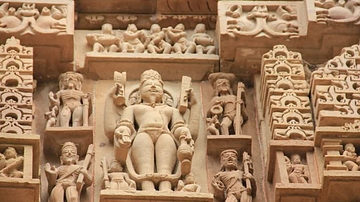
Image
Agni figure, Khajuraho
Agni, the fire god. He holds a sacrificial altar, the Vedas, and a water pot, and is surrounded by four smaller fires, their skeletal forms showing the effect they have on humans. Khajuraho, Madhya Pradesh, India, 11th CE.

Image
Agni Illutration
Agni, the Hindu god of fire. In a typical pose he has flaming hair and rides a ram.
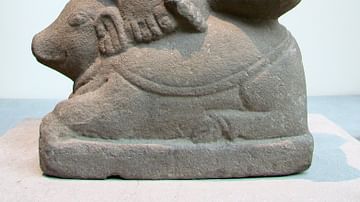
Image
Agni Seated on a Ram
The Hindu god of fire Agni seated on a ram. Angkor Borei, Cambodia, 7th century CE. (Musée Guimet, Paris)

Video
Agni - The God Of Fire
Agni is an acceptor of sacrifices and the God of Fire. He is ever young because the fire is re-lit everyday. He is depicted with two heads, one that symbolizes immortality and the other marks an unknown symbol of life. Watch the video to...
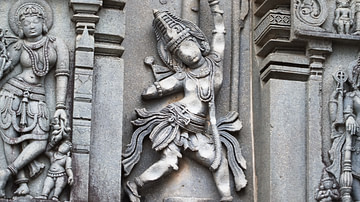
Definition
Arjuna
Arjuna (also given as Arjun) is the great hero of the Indian epic Mahabharata and the philosophical-religious dialogue Bhagavad Gita. His name means “shining”, “silver” and similar terms relating to brightness. He is the most popular champion...
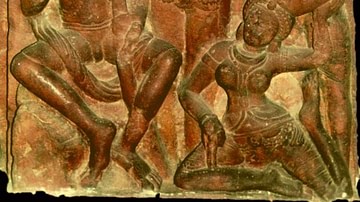
Definition
Ramayana
The Ramayana is an ancient Indian epic, composed some time in the 5th century BCE, about the exile and then return of Rama, prince of Ayodhya. It was composed in Sanskrit by the sage Valmiki, who taught it to Rama's sons, the twins Lava and...

Definition
Hinduism
Hinduism is the oldest religion in the world, originating in Central Asia and the Indus Valley, still practiced in the present day. The term Hinduism is what is known as an exonym (a name given by others to a people, place, or concept) and...
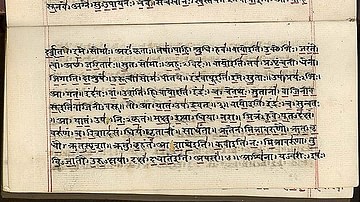
Definition
The Vedas
The Vedas are the religious texts which inform the religion of Hinduism (also known as Sanatan Dharma meaning “Eternal Order” or “Eternal Path”). The term veda means “knowledge” in that they are thought to contain the fundamental knowledge...
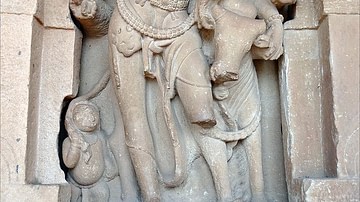
Definition
Shiva
Shiva (Siva) is one of the most important gods in Hinduism and a member of the holy trinity (trimurti) with Brahma and Vishnu. Shiva is a complex character who may represent goodness and benevolence, and he serves as the Protector. Shiva...